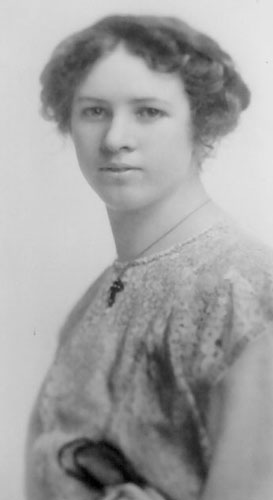She Fought for Prohibition, 1890 – 1964
By Sandra Schumacher
WLP Story Number 8
Baptized as an infant in 1890 in the pure waters of Vernal Falls at Yosemite, California, Vernal Gay dedicated herself to the pursuit of a better life for all human beings. Perhaps due to her Methodist upbringing, she believed that the Women’s Christian Temperance Union provided the light that could illuminate the way for people struggling with vices that ruin lives.
After the turn of the century, as a young teen, she moved to the Puget Sound area with her family, settling in Des Moines. She eventually became engaged to Grover Love, and even though she was concerned he would be sent overseas, married him in 1918. At the end of World War I, the couple settled in Snohomish, where Grover became principal of both Snohomish and Monroe High Schools. After a few years, the Love family moved to Everett, and Vernal’s husband began a thirty-five year career as principal of Garfield High School.
Meanwhile, Vernal had begun a lifelong devotion to two things – her family, of course, and the Women’s Christian Temperance Union. She admired the WCTU for being among the first to work for child welfare, the eight-hour workday, legislation for the security of the home and equal suffrage.
She was especially pleased WCTU efforts led to the 18th Amendment to the Constitution, which brought prohibition in 1919, and most displeased when it was repealed by the 21st Amendment in 1933. A true WCTU activist, Vernal joined others in educating the female electorate on the importance of voting. She served as a judge at the 1936 state WCTU convention which voted to continue pushing for prohibition rather than moderation in drinking. She was treasurer from 1937-1945 and elected vice president in 1946. That year, still convinced that alcohol was the root of most of society’s problems Vernal wrote a Letter to the Editor of the Everett Herald reiterating that “there never was a time in the world’s history when clear brains were more desperately needed than today in the solving of monumental problems. Surely alcohol, a narcotic drug, cannot help.”
Although the sale of alcohol was not abolished, Vernal’s dedication to the progress of social good touched many lives in many ways. Perhaps her future had been set under the pure waters of the Falls for which she was named. The strong convictions she developed as a young woman continued to course through her until her death in Long Beach, California in 1964.
Sources: Shirley Love Liska; 1942 minutes of the WCTU, State of Washington Chapters, held at the University of Washington Library.
© 2006 Sandra Schumacher; All Rights Reserved
